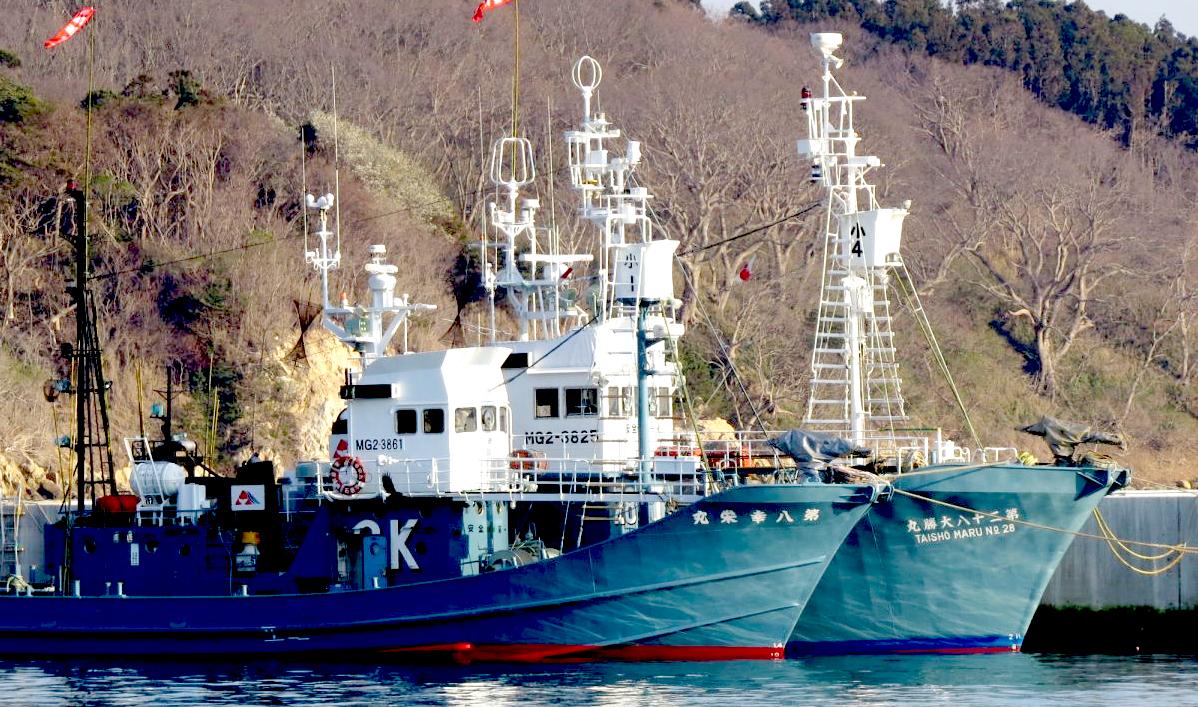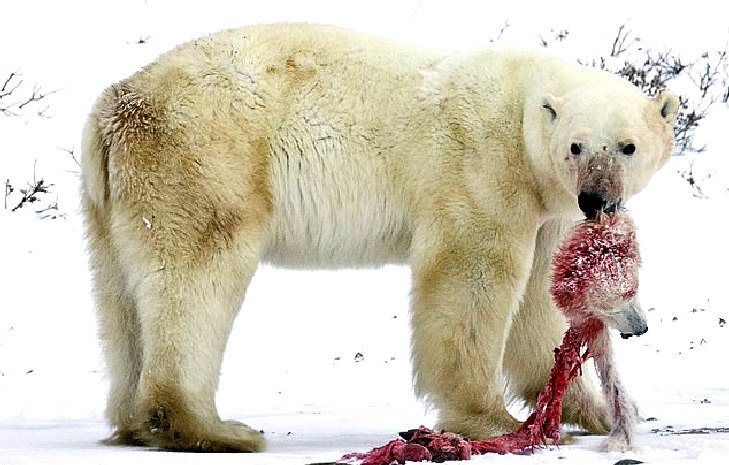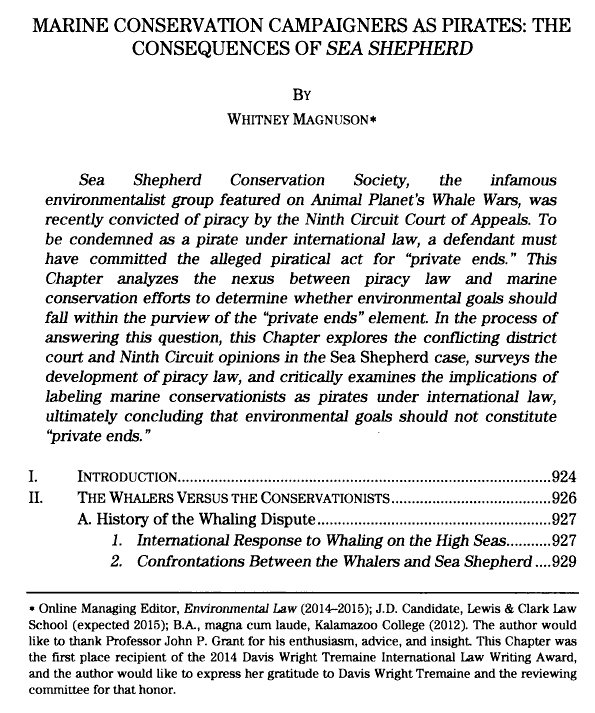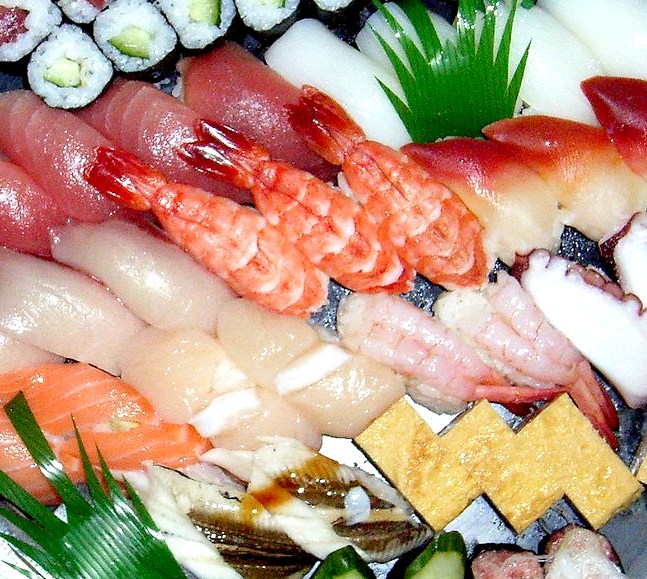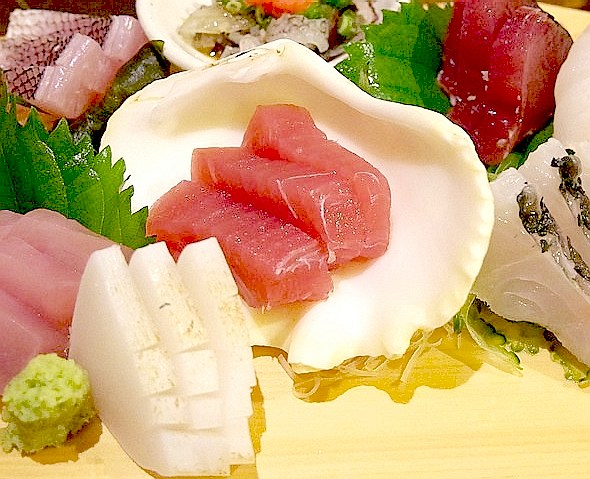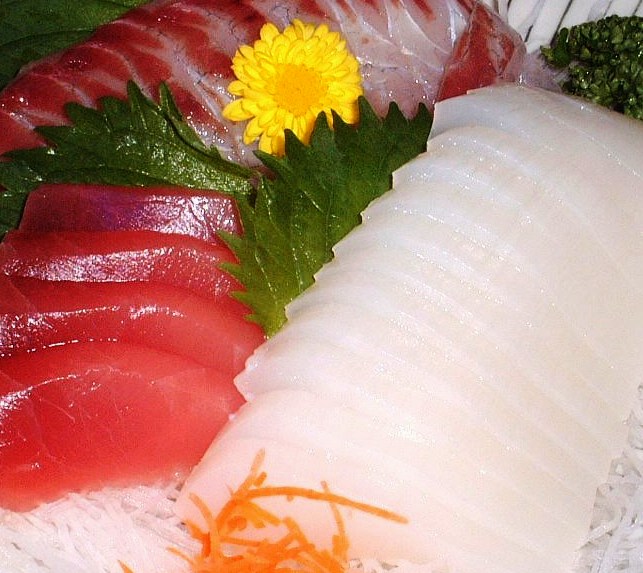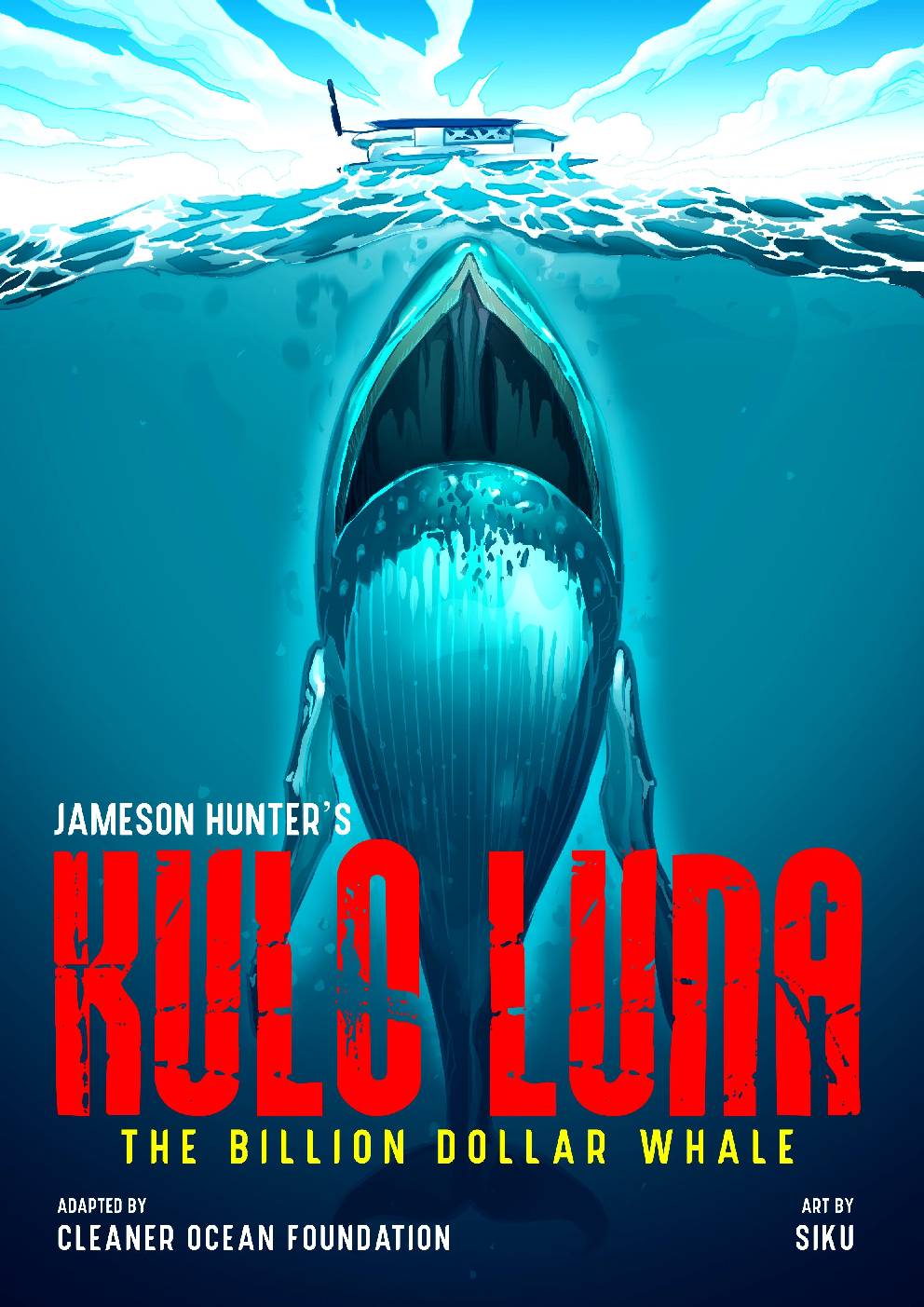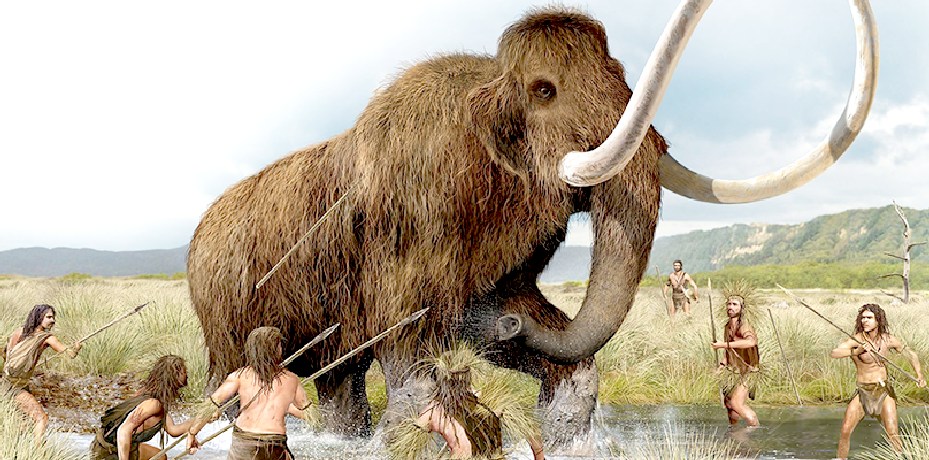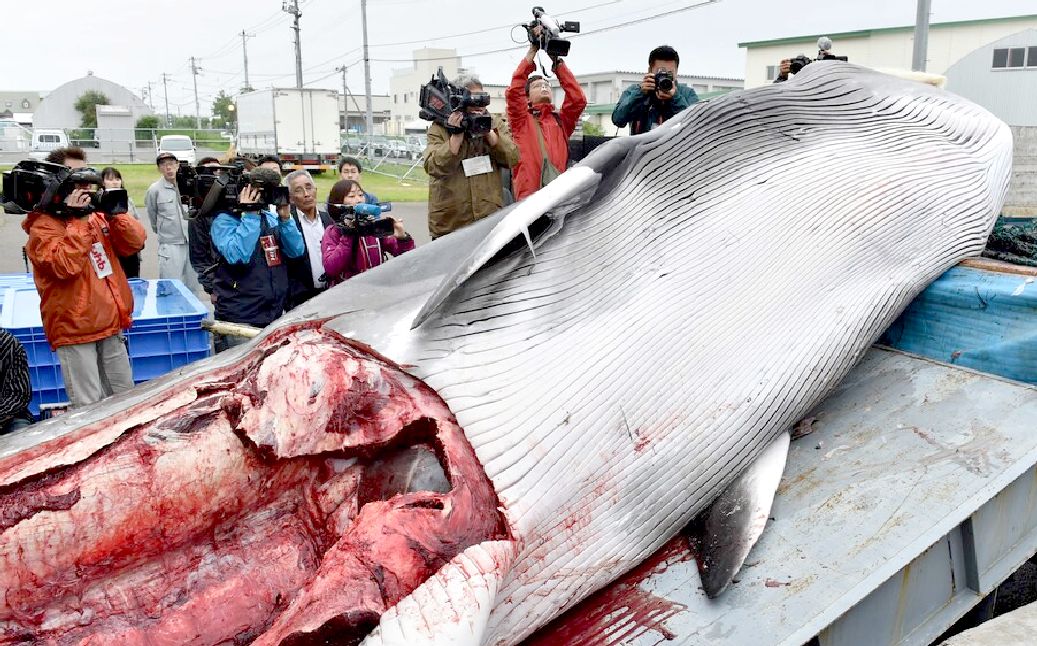|
A L L A B O U T P I R A T E S & W H A L I N G
Please use our A-Z INDEX to navigate this site
|
Japan is bearing the brunt of campaigns against whaling, but they are an Island nation, reliant on seafood for their survival. In 2019, they resumed whaling, against the refusal of the Commission to negotiate. They argue that their harvesting of whales is sustainable. But with the pressure on the sea due to human population growth, and desertification of formerly arable land, it is feared that whale meat will become an irresistible resource for other non-island nations, that could then become over exploited, as per yesteryear, when some species were all but wiped out. And it could happen again. Meantime, ghost fishing nets are killing marine mammals, indiscriminately. With fishermen dumping gear without reporting it. So, who is the bigger criminal, the trawler skippers who discard their nets, or the politicians that allow them to do so free of prosecution. Or are they equally guilty of torturing the hundreds of thousands of seals, turtles and whales they jointly murder every year?
By virtue of International Agreement, nearly all whaling at sea in 2021 is deemed to be pirate fishing and illegal, save for a very limited amount of traditional aboriginal whaling that is of course legal. But piracy has many meanings.
The concept of hunting whales for food is to do with feeding hungry people. This is the need that overrides conservation of species, provided that the species is not hunted to extinction. Because, that would not be a sustainable practice.
This is likely to change as fish from traditional fisheries become more poisonous from ingested micro plastics, laden with toxins like PCBs, with ocean farmed fish being no more healthy for humans, if exposed to the sea. The choice is to eat toxic fish and become sick later in life, or avoid contaminated seafood and live longer. The ramifications of such choices will affect generations to come where sashimi and sushi dishes will be most affected. Meaning that pescatarians, who would normally expect a longer life, might curtail their longevity.
As crops fail and arable land mass reduces from desertification, a growing population will still require feeding. Though the inability of mother earth to provide such crops as global warming comes back to haunt us, is sure to lead to desperate measures. In times gone by this has included cannibalism. Humans eating each other to survive. In such a scenario, whaling bans would be relaxed, until such time as climate change is tackled head on, until measurable reversal.
CANNIBALS - A Russian scientist revealed polar bears are feeding on each other in the Arctic as melting ice and fossil fuel extraction destroys their habit. The rise in cannibalism incidents, could also be due in part to an increase in human activity in the Arctic who are there to witness the horrific events. These animals are turning on each other because their food supply is scarce – large males are attacking females and cubs because they are easy targets and mothers are eating their babies. Their dwindling food sources is being blamed on the climate crisis, as ice levels in the Arctic have decreased at least by 40 percent over the last 25 years. Hence, eating each other is a survival tactic for a carnivore.
Cannibalism is likely a natural, trait in many animals that activates under certain environmental stimuli. The 1972 crash of Uruguayan Air Force Flight 571 shows that modern human omnivores, who are typically repulsed by the idea and may even have deeply held religious convictions against it, will eat one another if push comes to shove, stuck in the deep, bone-chilling cold, with no recourse for help. Again, a survival tactic, as with the survivors of the Essex whale attack in 1820, who were forced to eat their shipmates, giving new meaning to the well know phrase: "Me hearties."
PIRACY
Piracy includes attacking ships and passengers for gain as in the Golden Age of Piracy, or carrying on other illegal activities at sea, such as whaling contrary to mostly international agreement. But piracy is also attacking whaling ships according to a ruling in the US Court of Appeals:
In February 2013, a US court labeled Ocean Shepherd as "pirates" and ordered it to stop its taking aggressive actions against Japanese whalers. In his 18-page opinion, chief judge Alex Kozinski of the 9th US circuit court of appeals wrote: "You don't need a peg leg or an eye patch. When you ram ships; hurl containers of acid; drag metal-reinforced ropes in the water to damage propellers and rudders; launch smoke bombs and flares with hooks; and point high-powered lasers at other ships, you are, without a doubt, a pirate, no matter how high-minded you believe your purpose to be."
As the IMO's MARPOL legislation introduces clean air laws to outlaw old diesel powered ships, with targets for 2030 not being met, and 2040 targets demanding stricter enforcement, whalers who refuel at sea in rust buckets with dirty exhausts, will be deemed to be carrying on an illegal activity at sea. At that point even if taking whales legally, the practice would be deemed an act of piracy, since the vessel is operating illegally in polluting the atmosphere with sulfurous particulates.
But without effective bunkering of clean fuels, and with economic chaos caused by more frequent floods and heat waves, fishermen would be forced to use what is at hand, in order to survive - and officials turn a blind eye in return for food parcels. Nobody could blame anyone for doing what is necessary for them to live: to ensure the survival of their genes.
Contrary to the picture painted by the media, only a small percentage of Japanese folk (less than 5%) eat whale meat, but they carry the brunt of news headlines. As the death toll rises from malnutrition, more would be bound to partake, rather than face a meal of more toxic fish, as with the polar bears and plane crash survivors. Such dietary change will not be limited to the East, but will be global phenomenon. Because Japan has stood up for their traditional fishing rights, they have parried the brunt of popular opinion. But all that will change as Russia and the US return to full-on whaling, in preference to eating their neighbors, joining in the pursuit of large mammals, and full bellies. When it is likely that Japan will need to seek alternatives, with whale populations in decline. As they witness the slaughter heralding from the West, decimating what was a sustainable resource.
SASHIMI & SUSHI - Traditional, and previously healthy Japanese cuisine will be rendered unsafe for human consumption, if plastic continues to pour into our oceans, acting as toxic sponges, that bio-accumulates as it works its way up the food chain.
Sashimi is a Japanese delicacy consisting of fresh raw
fish or meat sliced into thin pieces and often eaten with soy sauce. is often the first course in a formal Japanese meal, but it can also be the main course, presented with rice and miso soup in separate
bowls. Japanese chefs consider sashimi the finest dish in Japanese formal dining and recommend that it be eaten before other strong flavors affect the palate.
Sushi is traditionally made with vinegared medium-grain white rice, though it can be prepared with brown, or short-grain rice. It is very often prepared with seafood, such as squid, eel, yellowtail, salmon, tuna or imitation
crab meat. It is often served with pickled ginger (gari), wasabi, and soy sauce. Daikon radish or pickled daikon (takuan) are popular garnishes for the dish.
Sushi is sometimes confused with sashimi, a related dish in Japanese cuisine.
THE CURE
The cure is so far removed from whaling, as to be invisible as a causal link, but is to steer away from disposable plastics, drive and navigate clean vehicles, and for governments to endorse low carbon economies, based on sustainable ethics, recycling and responsible consumption. Humans are unique in all the Universe, as the only species intelligent enough to be able to control their destiny, save that representation of the people is diluted, and it's every politician for themselves.
It is because corruption is allowed to persist, in cancerous regimes, that the natural world suffers. Despite the ordinary citizens voicing concerns. Humans have proved themselves unable to contain greed at high levels of power, where the trust of the electorate has been consistently betrayed and expansion of borders and military might, and even space conquest, is more important than kindness and understanding our eco-systems.
VOLUNTARY
The present Whaling Agreement is voluntary, not a Treaty. The strength of the agreement is due to the number of countries engaging positively, where food security is not yet biting on their shores. Those at present with stores brim full of produce can afford to agree not to hunt for food, as they are not yet in danger, but could become so, if there were no consensus by a majority of countries. This is common sense, but profit motive and hunger tends to hold sway.
Carcinogenic fish and food shortages are likely to force many nations to re-engage in large-scale commercial whaling, as a matter of survival in coming years, with the IWC giving ground rather than see member nations excuse themselves from any kind of accord.
Whales are mammals like humans and dolphins, so that the hunting of whales is strictly speaking, not 'fishing', but taking anything from the sea, except oil and minerals, is termed fishing - as in to find and catch something hidden from view, or hard to find.
GRAPHIC NOVEL PROJECT - In the genre of Moby Dick, except set in a future world where chronic food shortages from toxic fish and acid oceans have made whaling of certain species legal again and commonplace, one humpback whale fights back against whalers, sinking their rusty, old, diesel powered boat.
This is the cover art for a graphic novel that the Cleaner Ocean Foundation are hoping to produce as one of their ocean awareness initiatives. Unlike Jaws, baleens have no teeth, but she still manages one heck of a clash.
As an object of consumption, the whale has been hunted for centuries for its oil, bones and meat. The history of whaling appears to have begun thousands of years ago, possibly 2200 BC. It is believed that the first organised hunt was conducted by the Basques in 700 AD, followed by the Flemish and the Normans, and then the British and the Dutch, surpassing the whaling activities of the Basques. Spain, Norway and France started whale hunting in the ninth century AD.
The British, Dutch and the Germans expanded their whaling activities to the North Atlantic. Japan and Russia are considered to have started coastal whaling in the twelfth century and the United States in the sixteenth century.
The early period of whaling was characterised by whaling from land stations, as the main method, with the use of hand-thrown harpoons and nets from rowing boats. After that, the captured whales were processed in coastal waters. Subsequent to the depletion of coastal whale resources, the period of pelagic – that is to say, open ocean – whaling began. Pelagic whaling also resulted in the expansion of whaling techniques, Russia establishing stations in Korea, and land stations opening in many other littoral states, such as Australia and Canada. With the development of new technology, land (whaling) stations lost their importance, and were abandoned.
Whales were processed entirely on-board factory ships, which resulted in States expanding their operations beyond territorial waters. New technology also contributed to the increase of caught whales. These included shell harpoons with an explosive head detonating inside the whale, which shortened the time of dying for a whale, sonar devices and helicopter tracking (on modern history of whaling see: J.N. Tønnessen and A.O. Johnsen, The History of Modern Whaling (R.I. Christophersen trans., C. Hurst & Company 1982); L. Larry Leonard, ‘Recent Negotiations Toward the International Regulation of Whaling,’ (1941) 35 AJIL, p. 90, 92; Kurkpatrick Dorsey, Whales and Nations. Environmental Diplomacy on the High Seas, University of Washington Press, 2014; Malgosia Fitzmaurice, Whaling and International Law, Cambridge University Press, 2015).
EXTINCTION
- When humans reached North America 13,000 years ago, 78 species that weighed over a ton vanished in the terminal Pleistocene megafauna extinction. After scrutinizing the fossil record, a team of researchers recently (April
2018) concluded that these ancient humans and their forebears expanding over the globe obliterated big mammal species, much as human activity today is leading to extinctions.
Felisa Smith was the lead author on a paper published in Science: “Modern extinctions are a continuation of this trend.”
Unlimited and unregulated whaling commenced in 1883 and lasted for 21 years, which proved more than stocks of whales could sustain. Until 1883, there is no reliable data on the number and type of species caught. Tønnessen and Johnsen are of the view that despite the lack of data, it is without doubt that all species of whales were caught.
Another invention contributing to an increase in the number of the whale species hunted occurred in 1921 when Peter Sørlle patented a ‘slip-way’ for factory ships. Pelagic whaling technologies allowed the mass exploitation of whales, and thousands of whales were caught every year, particularly in the Antarctic. Antarctic pelagic whaling quadrupled in the course of three successive periods between the years 1927-1931. However, over-production and over-expansion coincided with the world economic crisis and a decrease in the price of all raw materials, which resulted in the collapse of the whaling industry. Oil from petroleum being one such intervention.
Overexploitation of whales during the period between the two World Wars led to the conclusion of two international conventions on the protection of whales: the 1931 Geneva Convention for Regulation of Whaling (155 L.N.T.S 349) and 1937 Agreement for the Regulation of Whaling (8 June 1937, 190 L.N.T.S. 79). The 1931 and the 1937 Whaling Conventions did not prove to be particularly effective, but they provided a legal framework for the future regulation of whaling, which, although not perfect, continues at present and is regulated by the 1946 International Convention for the Regulation of Whaling (ICRW) and the International Whaling Commission (IWC).
In the US they also have the Endangered Species Act 1973, under attack by the Trump administration in 2020, but with President Joe Biden at the helm, there is hope.
Illegal whaling includes the deliberate setting of nets to snare unwary cetaceans, with claims to accidental death. Around 75% of whales have some kind of encounter with discarded fishing gear in their lives, a number of them being killed as a result with no benefit whatsoever to mankind. We are lobbying for machines that can deal with these floating death traps, or effective tagging of nets, and appropriate punishment for offenders who fail to report discards.
You can help the Cleaner Ocean Foundation draw attention to these issues by spreading the news within your circle.
SAFER THAN SEAFOOD - Though an unpleasant sight, Japan and other fishing nations may have to get used to it. Eating whales will be safer than eating contaminated shellfish and fish. And it is better than eating each other, that with agricultural land reducing every year, staple food prices will rocket. So, think about lobbying your leaders to reduce the use of fossil fuels and plastic packaging.
We need to bring our oceans back to where they were in the 1970s, brim full of healthy fish. We also need our ice caps back, to stop polar bears eating each other. Possibly, in extremis, eating each other. But, we cannot imagine it will get that far. Apparently human flesh tastes of veal or pork. Human brain is more dangerous than toxic seafood. In a quite macabre twist of fate, victims of a disease called 'Kuru' end up dying of dementia within a year, as the prion (transmissible spongiform encephalopathies) from consumed brain tissue ends up infecting the brain of the consumer. It is akin to mad cow disease.
Cheap, nutritious and plentiful, whale meat became synonymous with the taste of home, a Japanese staple in school, stirring childhood memories,
after World War II in 1945. Whale meat helped the country to recover
after hostilities and nuclear devastation - that we think should never
have been allowed - and must never happen again.
Please use our A-Z INDEX to navigate this site
|
|
This website is Copyright © 2025 Cleaner Ocean Foundation Ltd
|
